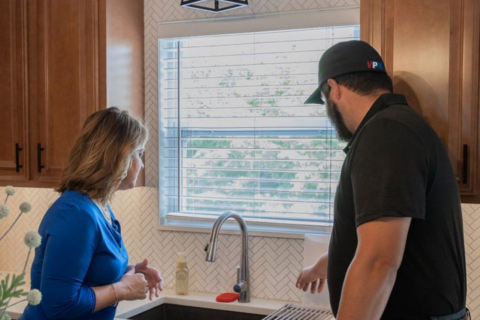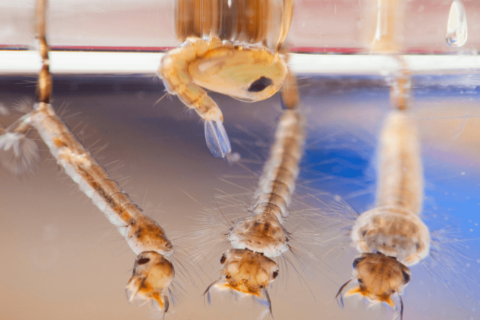Poison Facts: Seasonal Poisoning Hazards: Spring
Be prepared.
- Put the poison control number (1-800-222-1222, U.S. only) in, on, or near your phone.
- Save webPOISONCONTROL® as a browser favorite (webPOISONCONTROL.org).
Spring Forward!
Change the batteries in your carbon monoxide alarms when you set your clocks forward. Keep appliances, furnaces, fireplaces, and wood-burning stoves in good repair.
Spring cleaning means dangerously strong chemicals may be within reach.
- Read and follow the directions on the product label.
- Turn on fans and open windows.
- Be especially careful with oven cleaners, drain openers, toilet bowl cleaners and rust removers. These caustics burn on skin or eye contact and are among the most dangerous products found in homes. Always keep them away from children – up high and locked away!
- Don’t mix cleaning products unless the label directs you to. Toxic gases may form. Never mix bleach with a cleaner that contains ammonia (generates chloramine gas) or a cleaner that contains an acid (generates chlorine gas).
- Store products in their original containers. The transfer of cleaners, pesticides or auto fluids to food or soda containers has caused some of the most serious poisonings in unsuspecting victims.
Household items: cleaning agents, pesticides, gardening supplies, plants.
- Common household cleaning products are the number one cause of accidental
poisoning in children. Prevention is the key to avoiding exposure to these
products. Keep all cleaning products out of the reach of children. - Many chemicals used to control insects, rodents and weeds are toxic to humans
and pets. Avoid using products that leave powder or pellets in areas where
children or pets may have access to them. - Children and pets should be kept out of the area when insecticides and other
garden chemicals are being sprayed. Read and follow the instructions on the
label carefully. - Always store products in their original containers.
Food poisoning.
- Spring weather brings picnics and barbecues, which require proper food storage and handling. When bacteria contaminates food, food poisoning can occur.
- Food poisoning symptoms are usually limited to vomiting and/or diarrhea and generally occur within one to 12 hours of ingestion.
- Fluids are recommended to prevent dehydration.
- Mild cases may be managed at home, but more severe cases often require medical attention.
Food storage.
- Place frozen foods in the freezer and refrigerated foods in the refrigerator as soon after shopping as possible. The refrigerator should be set at 40˚F, the freezer at 0˚F. If you don’t have a thermometer, keep your refrigerator as cold as possible without freezing your milk or lettuce.
- Thaw foods in the refrigerator, not on the counter.
- Don’t buy canned goods that are bulging, dented or rusted.
- Refrigerate food within two hours of cooking. Food should not sit at room temperature longer than that.
- When picnicking, keep hot foods hot and cold foods cold.
- If using an ice chest, make sure you have plenty of ice. Keep it in the shade if possible.
Food preparation.
- Wash hands in hot, soapy water before, and frequently during, food preparation.
- Wash all fruits and vegetables before eating.
- Wash cutting boards and utensils in hot, soapy water or a 10 percent bleach solution after use.
Cooking.
- Thoroughly cook all meats, poultry, and seafood.
- Don’t eat raw or partially cooked eggs or shellfish.
- Cook foods as close to serving time as possible.
Easter egg dyes.
- Some Easter egg dyes are made with potentially poisonous ingredients. When buying materials for dyeing eggs, choose those labeled NON-TOXIC.
- Children often mistake the colored tablets for candy. Always supervise children when dyeing eggs.
Sources:


